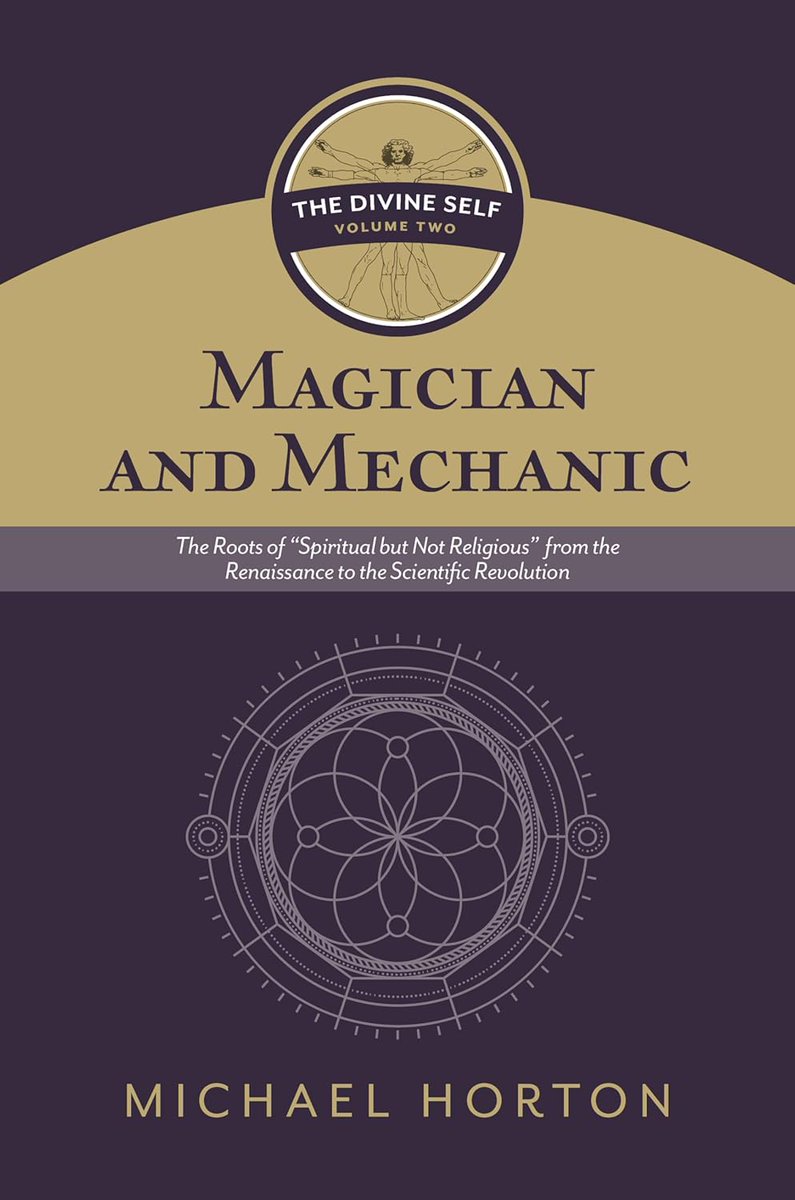
Michael Horton
@MichaelHorton_
Professor of Systematic Theology and Apologetics at Westminster Seminary California. Founder of @solamediaorg.
Magician and Mechanic: The Roots of “Spiritual but Not Religious” from the Renaissance to the Scientific Revolution My next volume in The Divine Self series is now available to pre-order: a.co/d/bh2JLoT

The canon of Scripture was not the result of a power grab. It was recognized by believers across the ancient world long before church councils affirmed it.
The Orthodox view of sin excludes original guilt, while the Western view admits both original guilt and original corruption/mortality. Despite Augustinian (and Roman Catholic) distortions of sin and nature, the confessional Protestant articulation of original sin is able to do…
It was a privilege to speak alongside @JustinHolcomb @garonnevik @Jimdavis79 at @solamediaorg's Binding the Broken conference. In my message on Hebrews 4, I compare Nietzsche’s “ugliest man” to the suffering of our great and sympathetic high priest, whom sinners can now have.
𝙎𝙞𝙣𝙣𝙚𝙧𝙨, 𝘾𝙤𝙢𝙚 𝘽𝙤𝙡𝙙𝙡𝙮 𝙩𝙤 𝙩𝙝𝙚 𝙏𝙝𝙧𝙤𝙣𝙚 𝙤𝙛 𝙂𝙧𝙖𝙘𝙚 Watch @MichaelHorton_'s full message from Binding the Broken: youtu.be/MeUxsfRCQ2s
The parallel between the first and second Adams in Romans 5 draws together tightly the corollary of “double imputation”: Adam’s guilt and Christ’s righteousness. Orthodoxy’s apparent denial of original guilt and its reticence toward legal categories cannot help but lead to a…
The Trinity conference with @credo @solamediaorg was one of the best conference experiences I've had. It was a pleasure to meditate on the Nicene Creed with @mike_reeves @RevKevDeYoung @gavinortlund @MattMBarrett @FredFredSanders
Who is the living God? Who exactly is the God that we worship? What sort of salvation does he offer? All this was the matter of Nicaea. Watch every message from the Trinity conference now ⬇️
I joined the Essential Anglican Podcast for a discussion on the importance of the Nicene Creed. We also discussed how the creeds can be a wonderful source of comfort and a tool for evangelism. open.spotify.com/episode/4Zx0yK…
I wonder what our Orthodox interlocutors would make of the following conclusion: From my perspective, both Orthodox and Roman Catholic theologies tend to collapse ontological and ethical categories—the East in a preference for good creation overwhelming sin, while the West tilted…
Faith is not unique to Christians. Everyone has faith in something—including scientists, who trust that nature is orderly, their minds are reliable, and that truth exists.
This was a fantastic discussion. Watch to learn why… - The New Testament manuscripts were reliably transmitted. - Gnosticism and syncretistic spirituality is just as exclusive as any major world religion. - Jesus Christ reveals himself as God by doing what only God can do. -…
Textual criticism, the reliability of the New Testament manuscripts, Gnosticism, the divinity of Christ, the canon, and early Christian origins. @WesleyLHuff, @michaeljkruger, Daniel Wallace and @MichaelHorton_ discuss all this and more. Watch now ⬇️
Science describes how the world works, but it can’t tell us why it matters. The deepest questions—Who am I? Why am I here?—belong to theology.
If we really believe that we are helpless to save ourselves, as Christians any more than pagans, the Sacraments become for us not a means for attaining grace, but for receiving grace. They are not rituals through which we proclaim our willing and running, but through which God…
It was a pleasure to have a special roundtable discussion with @WesleyLHuff as well as @michaeljkruger and Daniel Wallace (@CSNTM) about the Bible and early Christianity. Lookout for the discussion next week @solamediaorg.
Tuesday, May 20 @WesleyLHuff, @michaeljkruger, Daniel Wallace (@CSNTM), @MichaelHorton_ Subscribe to @solamediaorg on YouTube
The shift from organized religion to “spirituality” is not a loss of belief—it’s a migration. It’s not that people don’t believe in anything; we just want belief without structure, doctrine, or accountability.
The creeds weren’t an addition to Scripture. They were summaries of biblical teaching, crafted to refute heresies that distorted what was already clear in Scripture.
This message from @mike_reeves was the most insightful and accessible summary of the Nicene Creed I've ever heard.
"For Nicaea, the Son was not an example of how to climb up to God. The Son is God himself come down." — @mike_reeves
Many assume that as religion declines, atheism will rise. But history tells a different story. The alternative to Christianity is rarely pure secularism—it’s almost always some form of mysticism, occultism, or pantheism.
The treasure that the church carries in earthen vessels is the gospel—the announcement that God has done for us in Christ that which we could never do for ourselves, even with his help. This is all we have at the end of the day, and without it our ancient pedigree and customs,…